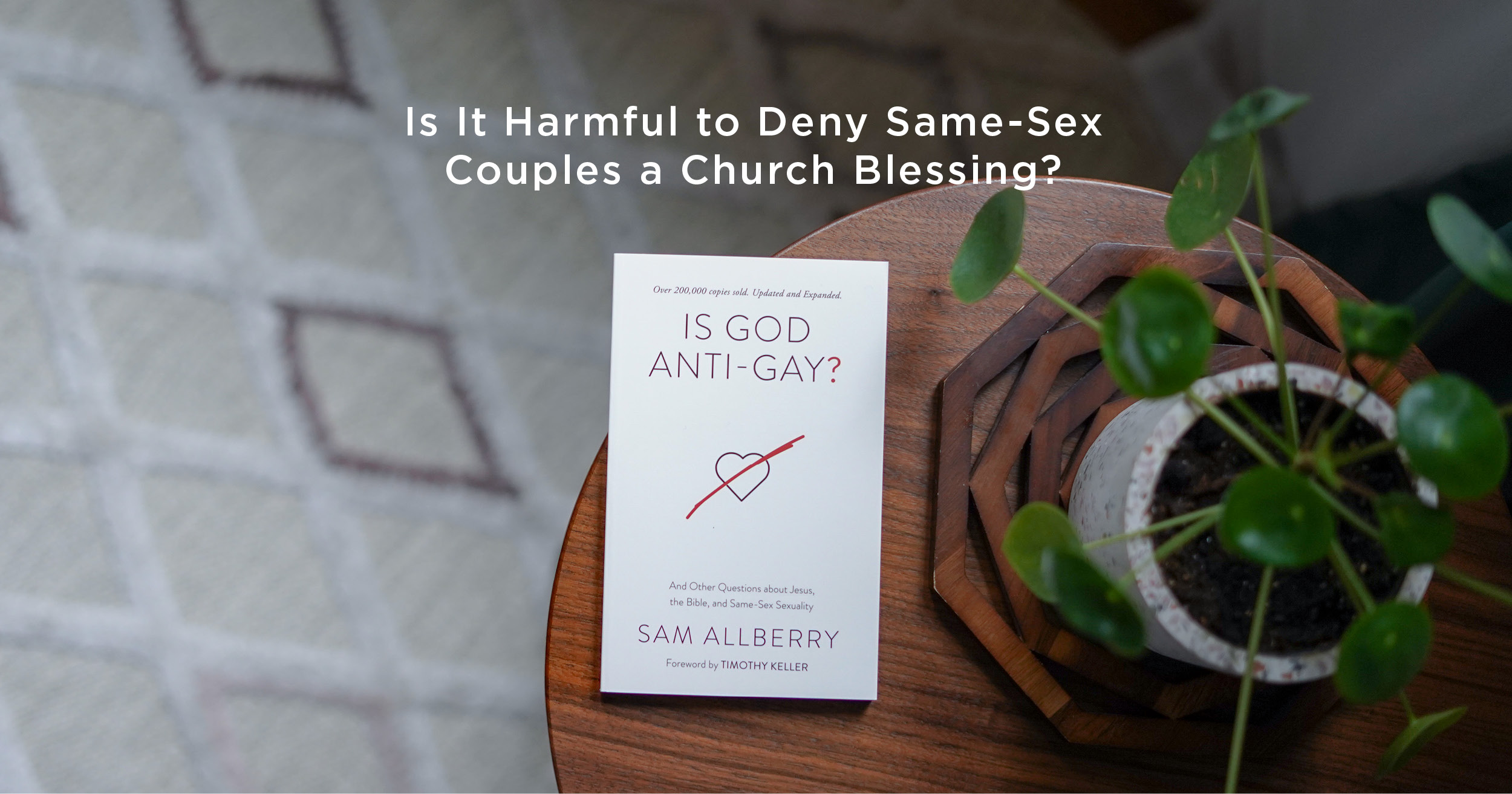
After days of debate, the Church of England voted in February to offer blessings in church to same-sex couples. Although ministers can choose not to do so, it puts them and their church families in an extremely difficult and painful position. One particularly difficult accusation that is often levelled at those who refuse to bless same-sex relationships is that their refusal causes deep damage to individuals.
Below is an extract from a chapter in the new edition of Is of Is God Anti-Gay? in which Sam Allberry, an ordained Anglican minister, answers this objection to the traditional Christian understanding of sexuality and marriage.
One of the most common and significant charges leveled against the traditional Christian understanding of sexuality and marriage is that it is deeply damaging to individuals. Denying someone’s sexuality is seen as denying who that person really is—telling them to repress something central to their identity and to their ability to flourish. Christians, it is increasingly claimed, are to blame for gay teenagers growing up guilt-ridden and even suicidal.
This charge has perhaps been made most forcefully by the author and activist Dan Savage:
“The dehumanizing bigotry set forth from the lips of faithful Christians give your straight children a license to verbally abuse, humiliate, and condemn the gay children they encounter at school. They fill your gay children with suicidal despair. And you have the nerve to ask me to be more careful with my words.” 1
It goes without saying that this is an incredibly serious charge. It is troubling enough that many Christians are beginning to think the traditional understanding must be wrong if it is having this sort of effect on people. Surely anything that results in this kind of self-loathing and despair cannot be the fruit of God’s truth.
The first thing to say in response to this is that in recent years there have certainly been instances of young people feeling driven to despair and even suicide who have attributed their distress to pressure from Christian disapproval of same-sex relationships. Young people both inside and outside the church are hurting profoundly on this issue. And who can deny how unspeakably tragic it is that anyone should feel such despair over their own sexuality?
It is not the teaching of Jesus that tells you that life is not worth living if you can’t be fulfilled sexually—that a life without sex is no life at all.
Of all people, we Christians should feel most grief at this, knowing as we do the supreme value that God places on all human life. We should care more than anyone when we hear of young people in such torment—especially those growing up in Christian households and as part of a local church.
We must also recognize that some believers have undoubtedly been abusive in their behavior and language toward gay people, thinking that by being like this they were somehow advancing the cause of Christ. But we must also recognize that such behavior is not itself Christian in any way. It comes not by adhering to the message and example of Jesus but by contradicting it.
But it is not true to say that such personal torment is the inevitable result of traditional biblical teaching on this issue. It is true that the convicting work of the Spirit can be very painful indeed. But though the genuine work of God might take us to such a painful place, it never leaves us there. If we are convicted, it is so that we can be restored. Jesus promises that we will find rest and comfort in him and that “a bruised reed he will not break” (Matthew 11 v 28-29; 12 v 20).
It is not the teaching of Jesus that tells you that life is not worth living if you can’t be fulfilled sexually—that a life without sex is no life at all. It is not biblical Christianity that insists someone’s sexual disposition is so foundational to who they are and that to fail to affirm their particular leaning is therefore to attack who that person is at their core. All this comes not from biblical Christianity but from Western culture’s highly distorted view of what it means to be a human. When an idol fails you, the real culprit turns out to be the person who has urged you to worship it—not the person who has tried to take it away.
The teaching of Jesus does two things: it restricts sex, and it relativizes its importance. Jesus shows us that in its God-given context, the value of sex is far greater than we might have realized—and yet even there it is not ultimate. Sex is a powerful urge, but it is not fundamental to wholeness and human flourishing. Jesus showed that both in his teaching and in his lifestyle. After all, Jesus—the most fully human of all people—remained celibate himself.
Jesus shows us that in its God-given context, the value of sex is far greater than we might have realized—and yet even there it is not ultimate.
The gospel shows us that there is forgiveness for all who have sinned sexually. And the gospel also liberates us from the mindset that sex is intrinsic to human fulfillment. The gospel call that no one need cast all their happiness on their sexual fortunes is not bad news but good news. It is not the path to harm but to wholeness.
1. Quoted in Justin Lee, Torn: Rescuing the Gospel from the Gays-Vs.-Christians Debate (Jericho Books, 2013), p 5.
This is an extract from Is God Anti-Gay? By Sam Allberry. A sensitive exploration of Jesus' teaching on sex and relationships, this book shares how the gospel is good news for everyone, whatever their sexual orientation